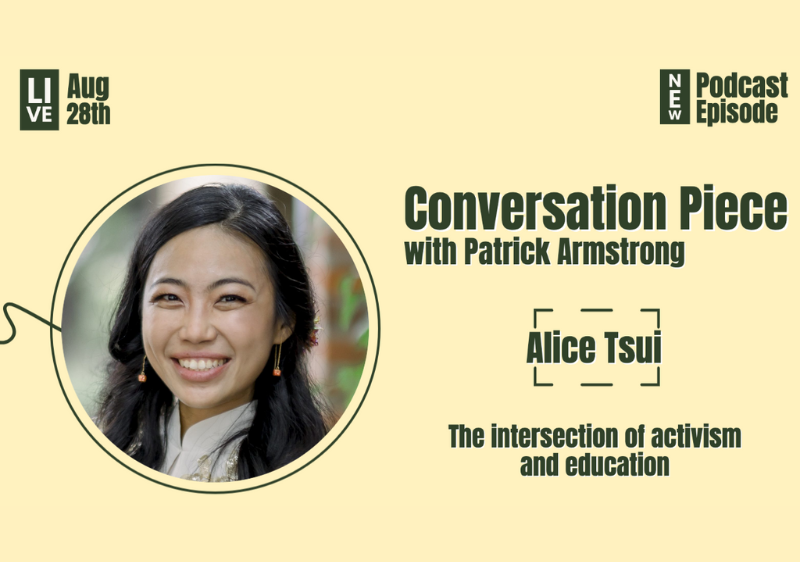Alice Tsui is a pianist, Grammy finalist, music educator, and activist from Brooklyn, New York. She is a first-generation Chinese American who was also the first in her family to pursue higher education with a Bachelor’s and Master’s degree. She is currently a doctoral candidate in music education at Boston University.
She’s passionate about decolonizing anti-bias, anti-racist, abolitionist, public music education and empowering youth’s individual and collective voices through music as expression. In this episode of Conversation Piece with Patrick Armstrong, Tsui shares how she uses music education to strengthen activism efforts in her community.
Activism through music education
As a lifelong musician and now music educator, Alice Tsui has a unique perspective on how music can play a major role in activism beyond protests. For Tsui, she shares how using affirmations in music education, such as songwriting, has enabled students to open up new levels of creativity. She shares, “when we think about teaching and music education or education overall, it’s so much ‘I teach you, you listen, or you absorb,’… But it’s, it’s not that. And I think that’s where things really just shifted for me… an individual affirmation can become a communal moment.”
Tsui also points out that protest music isn’t an old conversation about 1960s history. Instead, recent music has been created for activism efforts such as Stop Asian Hate. “I even think about the Asian American activism of Jason Chu and Alan Z’s album [and We Belong ’21 by Magnetic North & Taiyo Na]… I believe that includes just so much history, but through Asian American rap and hip hop … this music out there exists for people to listen to. Music is such a timestamp of what’s happening in the world.”
Intergenerational conversations empower communities
Another impactful form of activism Tsui recognizes is when children and youth have…
Read the full article here





